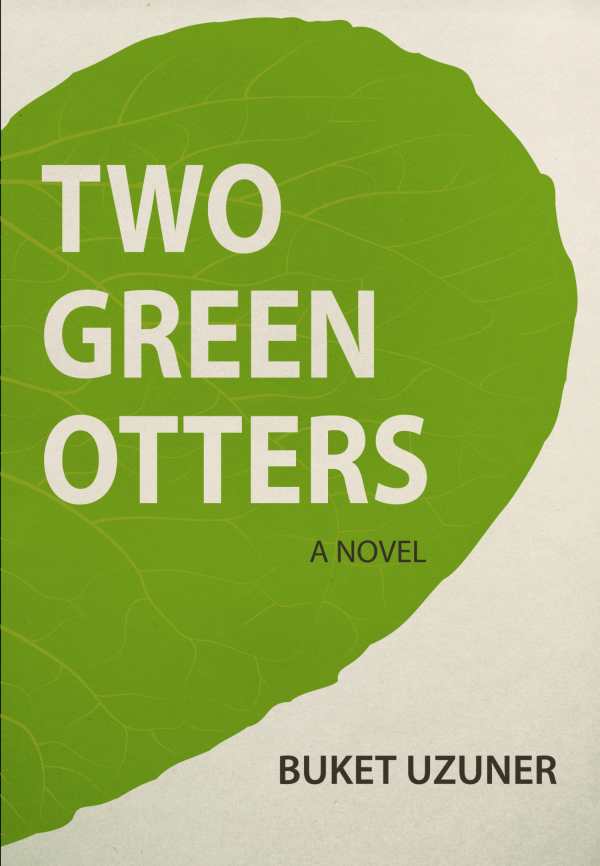Two Green Otters
Daring narrative styles and bursts of philosophy make the maybe-love story within Two Green Otters a fascinating trip.
Buket Uzuner’s Two Green Otters is a story of love and ennui in which a mysterious protagonist struggles to commit to affection despite the risks it carries. This crisp and surprising novel calls into question the credibility of any story declared to end with a happily-ever-after.
Nilsu feels undone by her parents’ divorce, and incapable of losing herself to love then after. She struggles to accept her father’s new relationship with the wise Selen, even as Selen rises in her affections as the woman she’d most love to emulate. She works to forgive her father, even though she considers her mother more responsible for the family’s suicide. And she lies to her first love, Mike, to secure him to her, a trick that proves effective even when he drifts from society at large. Each vulnerable utterance is, to her, an inferno, and even falling for the unparalleled Teoman—a fiery liberal of the most seductive order—worries her with its risks.
Nilsu’s story occurs against an interesting backdrop, as it is set in an Istanbul in flux, where those who defy the status quo are always at risk of being “disappeared.” It also occurs within a shifting context. Her narrative is channeled through a ghostwriter, who is given loose leafs of computer paper and is asked to draw a novel from them. Intrigued, the writer does so, only to find herself without a satisfactory ending at the bottom of the pile, and compelled to chase the truth among those named within.
Uzuner’s story is so at once about Nilsu finding love, and about whether someone like Nilsu—liberated from social conventions, wracked with cynicism, and cushioned by the care of those who drink literature like medicine—can even exist. It thwarts conventionality, and then reconstitutes it with winding doubts; it reluctantly concludes that love is ultimately possible, and then undermines its own hard-won victories.
Daring narrative styles and bursts of philosophy make the maybe-love story within Two Green Otters a fascinating trip, and as it weaves in and out of hope and despair, its questions prove to be both perennial and tragic.
Reviewed by
Michelle Anne Schingler
Disclosure: This article is not an endorsement, but a review. The publisher of this book provided free copies of the book to have their book reviewed by a professional reviewer. No fee was paid by the publisher for this review. Foreword Reviews only recommends books that we love. Foreword Magazine, Inc. is disclosing this in accordance with the Federal Trade Commission’s 16 CFR, Part 255.

